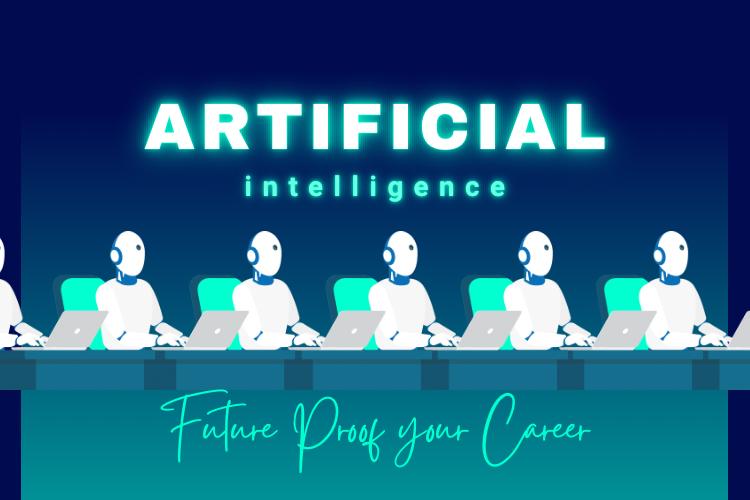
Future-Proof Your Career: Essential Skills for the AI-Driven Workplace
Pratyush Majumdar
Introduction
World today is undergoing a rapid transformation, driven by the growing influence of AI across nearly every sphere of life. From education and workplaces to everyday interactions, artificial intelligence is reshaping traditional systems, redefining roles, and altering the way we learn, work, and live.
The dynamics of the modern workforce are undergoing a rapid transformation too, primarily driven by AI. Key trends shaping this shift include:
More Career Transitions: Professionals entering the workforce today are expected to hold twice as many jobs throughout their careers compared to 15 years ago, reflecting a shift toward adaptability and continuous skill development.
Evolving Skill Sets: By 2030, 70% of the skills required in most jobs will change, with AI playing a crucial role in redefining job functions and competencies.
AI-Driven Workplace Innovation: Recognizing AI’s potential, 88% of global C-suite executives consider accelerating AI adoption within the next year a priority, and 80% believe it will foster a more innovative workplace culture.
Business Growth with AI: The impact of AI is already visible, as 51% of businesses using Generative AI (GAI) have reported a revenue increase of 10% or more. In its article on essential skills for employees to thrive in the evolving job market (https://www.forbes.com/councils/forbeshumanresourcescouncil/2025/01/03/19-skills-employeeswill-need-in-the-next-five-years/), Forbes highlights 19 key skill sets that will be crucial for navigating the workplace of the future:
1. Adaptability – The ability to embrace change and quickly adjust to new work environments is crucial in an unpredictable job market.
2. Data Storytelling – Employees must not only analyze data but also present insights in a clear, engaging manner to drive decision-making.
3. AI Literacy – A basic understanding of artificial intelligence and its applications will be essential in an increasingly automated workplace.
4. Cognitive Flexibility – Shifting between different perspectives and problem-solving approaches is key for tackling complex challenges.
5. Emotional Intelligence – Managing personal emotions and understanding others’ feelings enhances workplace relationships and teamwork.
6. Digital Literacy – Mastering digital tools and technologies is fundamental for efficiency and productivity in a tech-driven world.
7. Critical Thinking – Employees must evaluate information objectively and make well-reasoned decisions to solve workplace issues effectively.
8. Creativity – Innovation and the ability to generate new ideas will set professionals apart in competitive industries.
9. Collaboration – Teamwork remains essential as organizations rely on collective efforts to achieve goals.
10. Communication – Expressing ideas concisely and effectively across different platforms improves efficiency and clarity
11. Leadership – Inspiring and guiding teams toward success is a valuable trait, even for those not in management roles.
12. Cultural Competence – Understanding diverse cultures fosters inclusivity and enhances global business interactions.
13. Resilience – The ability to recover from setbacks and maintain motivation ensures long-term career growth.
14. Time Management – Prioritizing tasks effectively increases productivity and reduces workplace stress.
15. Networking – Building professional relationships opens doors to career opportunities and knowledge sharing.
16. Financial Literacy – Understanding budgeting, investment, and financial planning is beneficial for both personal and professional success.
17. Project Management – Organizing, planning, and executing tasks efficiently leads to successful outcomes.
18. Negotiation – The ability to reach favorable agreements is useful in salary discussions, business deals, and teamwork.
19. Lifelong Learning – Continuous skill development is necessary to stay relevant in a rapidly evolving job market.
As AI continues to reshape industries, organizations and professionals must embrace continuous learning and digital transformation to stay competitive in this evolving landscape.

